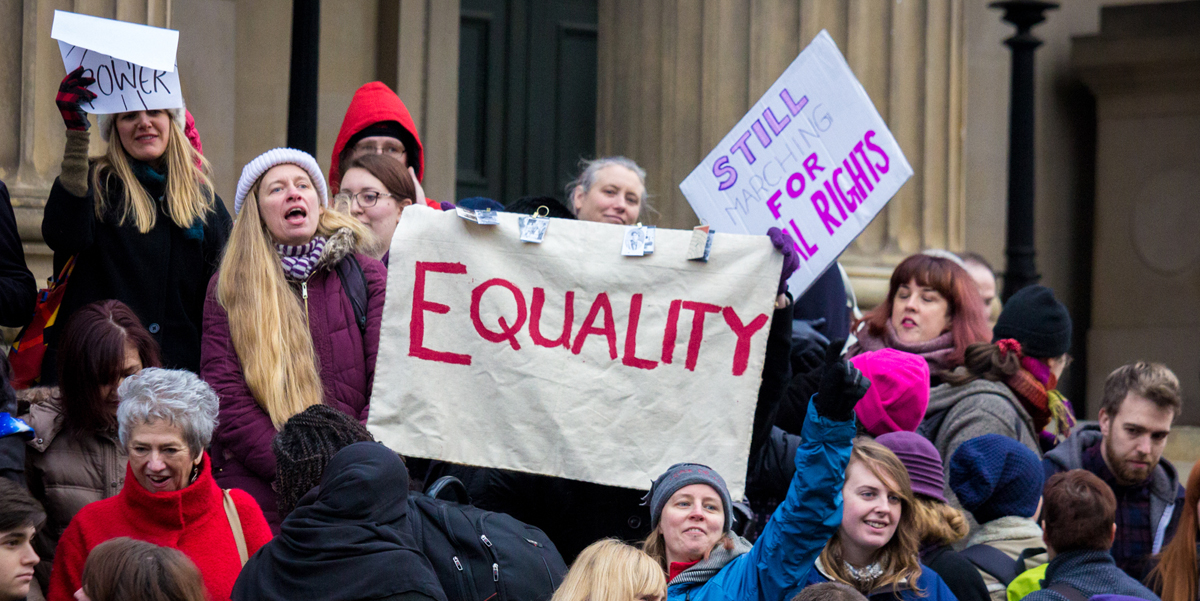Slow progress
Local government is still not working well enough for women Media coverage after the general election celebrated the fact, that for the first time, more than 200 women were elected as MPs. It was a milestone, although given that it only...
Local government is still not working well enough for women
Media coverage after the general election celebrated the fact, that for the first time, more than 200 women were elected as MPs. It was a milestone, although given that it only represented a slight increase on the 2015 parliament and saw us 40th in the international rankings for women in parliament, you will forgive me if I’m not popping the bubbly just yet.
Yet while parliament has progressed in recent years – with the proportion of women MPs up from 18 per cent in 1997 to 32 per cent today – at local level little has changed over the same period. The proportion of councillors who are women has only increased from 27 per cent to 33 per cent in 20 years.
Getting more women into local government matters because 78 per cent of councils’ workforce are women. Local authorities have a huge impact on women’s lives – from early years’ provision to social care and from housing to domestic violence services. With devolution we have created new tiers of regional government with spending power and decision-making for example on skills, childcare, social care or transport, but just 12 per cent of combined authority representatives and none of the six elected metro mayors are women.
Within this stalled picture, Labour has made more progress than the other parties. At this year’s elections 45 per cent of Labour MPs and 44 per cent of Labour councillors elected were women. All-women shortlists are largely driving this improvement. But on councils, it is clear that not all local parties adhere to Labour party rules which are designed to achieve equality – the ‘one in three’ rule, plus all-women shortlists in selected safe seats. And the uncomfortable truth for Labour (and for all of us) is that while all-women shortlists deliver the numbers, they don’t necessarily change the culture. In fact, a visibly outdated culture in some parts of local government is holding it back.
Councils like Manchester, North Tyneside, and Rossendale have achieved equal representation. But there are a host of councils in Labour control, like Hastings, Ipswich and Derby, which do not even have a third women on their Labour groups. The electorate’s choices may ruin well-laid plans – but Labour’s regional directors need to be asking serious questions when the gap is this wide.
And the overall picture of better women’s representation amongst councillors does not translate into more women at the top of Labour local politics – fewer than one in five Labour council leaders are women. Our local government commission, co-chaired by Dame Margaret Hodge MP, has spent the last year conducting an intensive research programme, and consulting with more than 700 women across local government.
We found that outdated stereotypes on council cabinets might be to blame for the lack of women leaders. 38 per cent of cabinet members on Labour councils are women – still some way off equality. But we also found a drastic split between ‘boy jobs’ and ‘girl jobs’ on council cabinets, with women outnumbered six to one in roles like finance and economic regeneration – precisely the posts which, past research has shown, are most often the routes to the top. Labour nationally must introduce a clear 50:50 rule for council cabinets immediately, and Labour councils must think carefully about which jobs they give women.
To get women to the top, the way that councils do business needs to change. We found that just 4 per cent of councils have a maternity policy for councillors. Both childcare support and support for carers are incredibly patchy, and this is a barrier for a third and half of Labour women respectively.
And sadly it appears that town hall sexism is alive and well: 44 per cent of Labour women councillors said that they had experienced sexist comments from others within the party, and 41 per cent from other councillors. For one in ten Labour women, this had escalated to sexual harassment. There is no excuse for this behaviour – but at present there is no real remedy available to those women. Councils need to act now to include a ban on sexist language and bullying, and to ensure there are formal standards committees in place to investigate breaches. Government needs to give these committees the ability to suspend or deselect councillors who behave like we are still living in the 1970s.
Disabled Labour women councillors told us that the way councillor performance is judged, often on the basis of hours on the doorstep, disadvantages them. BAME women councillors are hugely underrepresented and face racism as well as sexism – this needs positive action to achieve change. Muslim Labour women told us about the pressure they often face from within their communities not to participate in politics, and local government leaders must be bold in standing with these women to challenge sexism.
Government needs to change the structures of local government so that we can get more women from all parties in, and support them to progress. Labour needs to rule in favour of at least 50 per cent women on cabinets, and enforce the existing quota system on councils. Can we make local government work for women? Given that women overwhelmingly rely on and deliver the services councils provide, it is about time that we did.

